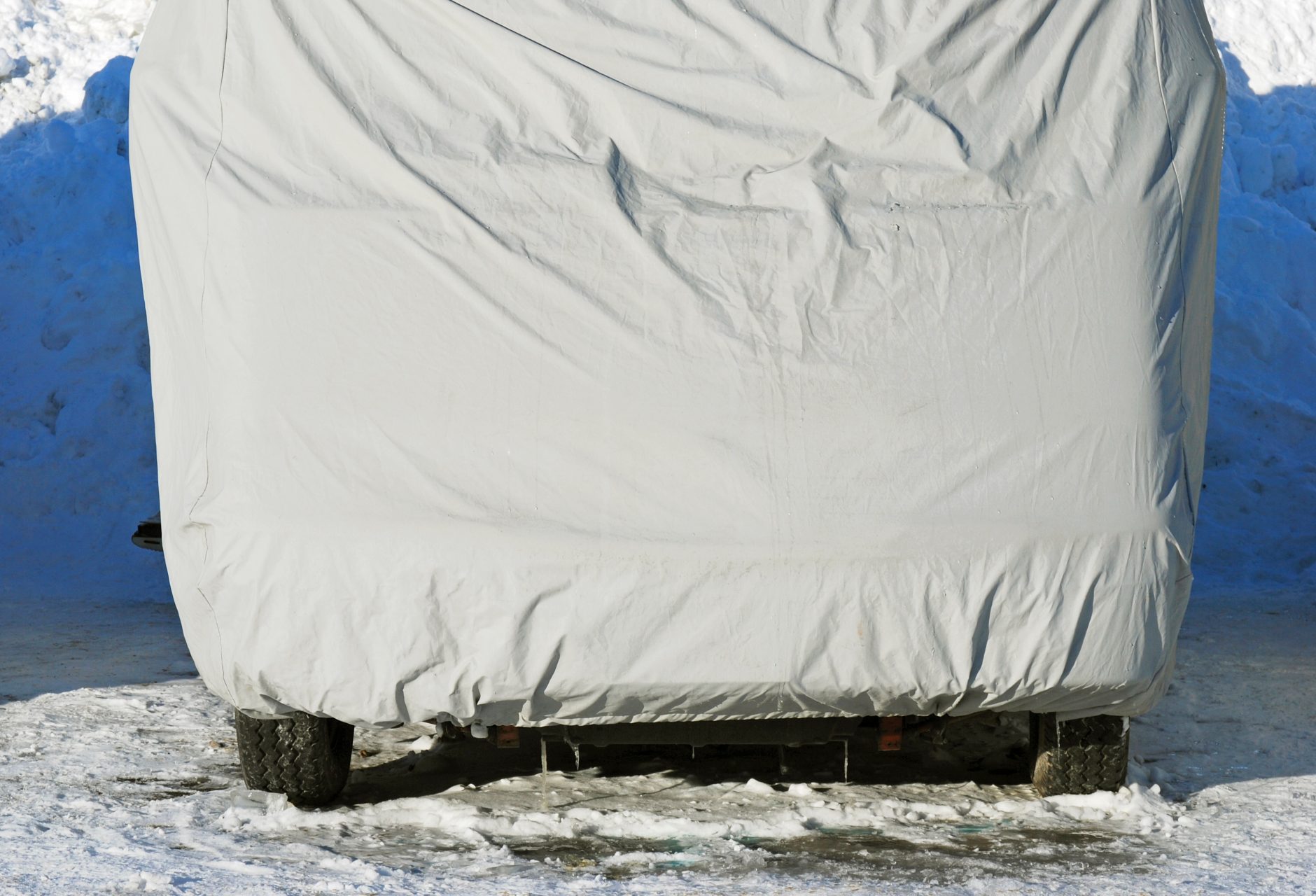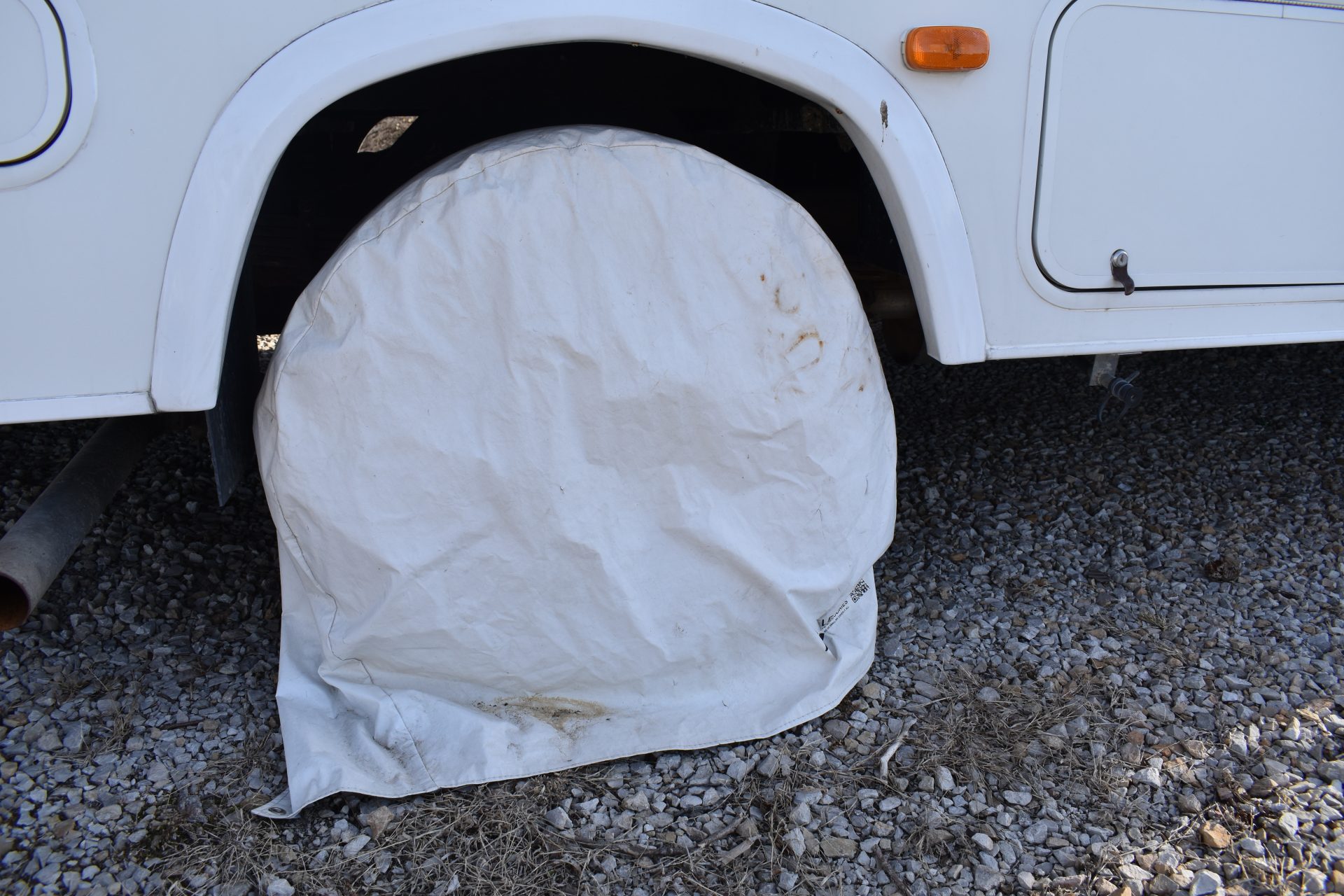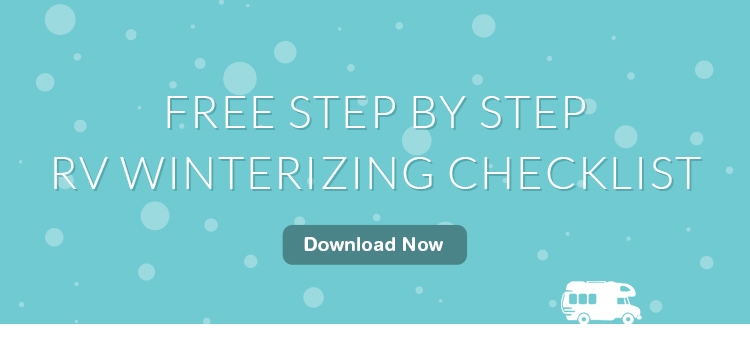Leaves changing colour, sweater weather is on its way in, that can mean one thing – fall is here! With the prep for a new season, it’s time to consider what you will do with your RV for the winter. Do you have indoor storage lined up or will your RV live outside? If you are not planning on winter camping, we want to help you save money in the long term by taking the time to protect your RV. Did you know that winterizing the exterior of your RV is just as important as winterizing the interior?
RV covers are one of the most debated RV accessories, but they were created for a purpose. So what is the hype all about?

Table of Contents
ToggleWhat are the pros and cons of RV covers?
Whether you are on the fence about the effectiveness of RV covers or you are interested in looking at options, we are here to help you find the best fit for your specific needs this season. Let’s take a step back and look at the facts: How effective are RV covers?
Pros of RV covers
Extra protection from the elements
Living in Alberta brings its own challenges in the winter months, including strong winds, ice storms and heavy snowfall. As such, RV covers are designed for durability to help to protect your RV from snow and debris hitting the surface. If heavy snow is cleared periodically over the winter months, it can lower the risk of moisture seeping through the material. Did you know that RV covers are designed with breathable material to allow air and moisture to escape rather than build up over time, thereby reducing the risk of mold and mildew?
Lower your spring maintenance costs
The extra time that you spend winterizing your RV and ensuring that it is properly stored over the winter can help save you time and money in the spring months. Your RV cover serves as anti-rust measures that can arise from snow and rain exposure. Without coverage in the winter, you will spend more time inspecting and repairing seals or faded parts that were damaged by snow or ice.
Lower the risk of sun damage
Sunny days with a blanket of white are quintessential scenes of winter, but the sun isn’t necessarily a friend to your RV. Continuous sun exposure can result in seal vent caulking drying out. An RV cover slows damage caused over time from the sun, while also ensuring that roof appliances like AC units and vents are not susceptible to water damage.
Cons of RV covers
Cheaper options can be more damaging
The urge to DIY a quick fix to save money can be tempting, but RV covers that are ill-fitting to your RV or are on the cheaper end of the spectrum are more likely to break or come loose in windy conditions, adding scratches or tears to the exterior of your RV. The use of tarps is not recommended for covering your RV as they are not designed to serve the same purpose for storage.
Limited access to your RV
Do you have appliances that need to be periodically checked throughout the winter? Most RV covers provide full coverage, which can get in the way of accessing generators or appliances stored inside or in access panels on the outside of the RV. Constantly removing and reapplying the RV cover can be tedious, causing more frustration than anything else.
No tire coverage
As we mentioned, one major oversight of RV covers is the lack of protection for your tires. Additional covers would need to be purchased and installed specifically for your RV’s tires, which can increase the cost if you were not anticipating it.
When properly installed and cared for, RV covers can last for years, providing you with ease of mind that your RV can stay dry and protected from whatever you may encounter this winter. At Grove RV, we carry a selection of RV covers for travel trailers and full-size rigs. If you are looking to purchase a cover, give us a call to reserve your cover today.
Winterizing 101: What do I need to clean before long-term storage?
For a complete step-by-step guide for winterizing your RV from the inside out, check out our winterizing checklist. We wanted to focus on a few winterizing steps that typically get overlooked but can make a big difference in minimizing repair costs each season.
Clean and properly store awning
RV awnings can provide great protection against the sun on days spent enjoying the great outdoors, but by the end of the summer months, it needs some TLC. Tree sap and sticky evergreen needles must be fully removed before winter storage. With a soap and water mix, spray down and wash off any sticky residue. At this time, take note of any rips or areas that may need to be repaired. Before you retract the awning, make sure that it is fully dry. Any water left on the awning can result in mold or mildew developing over the winter months.
Protecting your exterior: Wax on, wax off
When choosing your wax, make sure that it is compatible with the material of your RV to avoid deterioration. Before waxing, take time to fully clean the exterior, spraying off any dirt or debris that you have picked up over the last few months. You may find split seams or cracks that were coated in dirt before that can now be patched with sealant before winter. Once you feel that the exterior is fully clean, you can wax the entirety of the RV. The purpose of the wax is to help protect your RV from UV damage and maintain the exterior’s shine and durability.
Cover your tires
Many RV covers are designed solely for the body of the RV or trailer itself, but your tires should never be neglected before going into storage for months on end. Covering your tires can help to protect them from the sun and rain, minimizing the risk of weather cracking or dry rot. Taking extra precautions will help you to get the most out of your tire’s lifespan and lower the risk of a blowout in the spring.
Not sure that you are done camping yet this year but unsure of where to go? Check out our top recommended year-round campgrounds in Alberta or plan your next winter glamping getaway.

Where can I find RV covers and storage accessories?
To get the most out of your RV cover, pay attention to the size of the cover to ensure that it is the perfect fit for the size of your rig. As a rule of thumb, a snug fit means better protection from moisture, bugs, and debris. Our qualified team of experts at Grove RV is here to help you find the right cover for your specific unit. As you start your wintering process, check out our online parts catalogue, or stop by in person to see our full collection of RV parts and accessories. If you are unsure of where to start, book a service appointment and we will winterize your rig for you!


